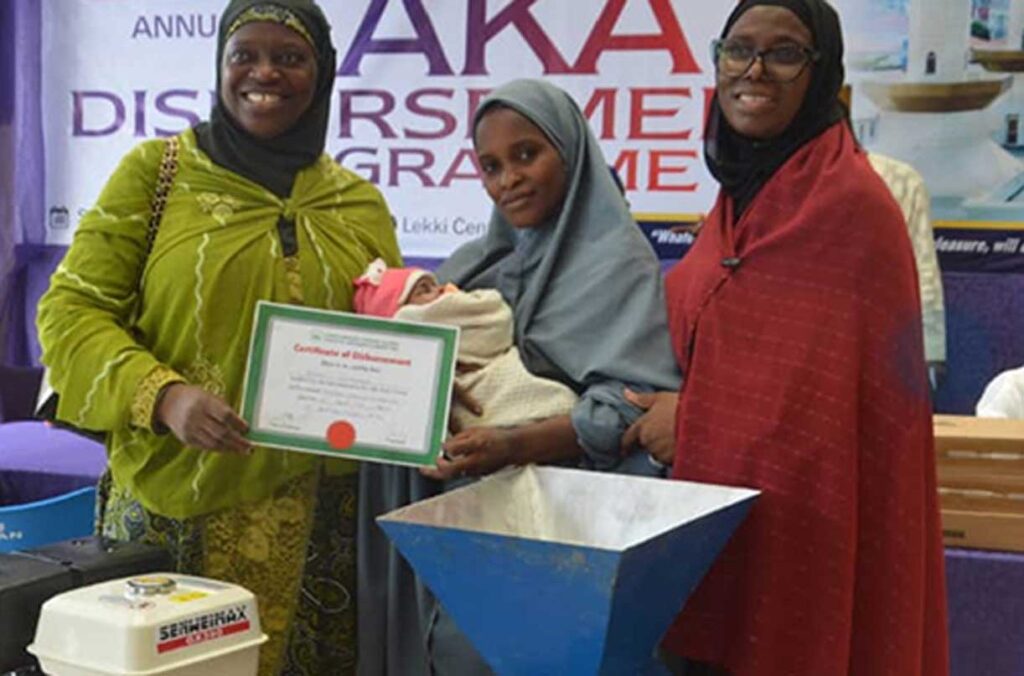
Not much prompting was needed for the audience to recall the story. Some years back an official of the Joint Admissions and Matriculation Board (JAMB) claimed that a mysterious snake had swallowed millions in cash, which was in her custody. Although that bizarre claim has since become part of the Nigerian folklore of corruption and abuse of public office, it also demonstrates how desperate, evasive and flippant corrupt officials can become when caught in the act.
The impunity with which corrupt officials resort to cock and bull stories in order to cover their tracks notwithstanding, retelling the story in the context of the anti-corruption fight in Nigeria was yet another reminder of the deep rot in JAMB before some radical reforms were introduced.
As things stand, the cheery and energising reality, which has received commendations from stakeholders is that JAMB has since turned the page for good. Through strong leadership and by meticulously implementing policies and key processes, JAMB has since moved to address the ethical and organisational lapses, which enabled anomalies such as the fictive story of reptiles swallowing cash.
These big strides taken to vigorously implement reforms, which have in turn provided the right incentives and motivation to collectively vanquish corruption formed the major highlight of the recent Actualising Behaviour Change (ABC) seminar of the Nigeria Institute for Social and Economic Research (NISER). Weary of the usual negative and demoralising narratives, which suggest that corruption is an insurmountable monster, the researchers at NISER were keen to put forward stories of transformational change and progress based on empirical evidence of institutions, which have dared to do things differently. As such, by identifying the specific steps taken by JAMB to decisively address grand scale and retail corruption within its operations, NISER hopes to share successes and best practices, which could be picked up and replicated by other institutions.
Supported by the John D. and Catherine T MacArthur Foundation, the ABC series is part of NISER’s corruption control project, which provides both the reflection and dissemination platform for researchers, academia, government agencies, civil society and the media to share insights and knowledge about behavioural change approaches, and the possibilities such hold for addressing Nigeria’s endemic corruption.
The fundamental question of how other institutions grappling with corruption can replicate such promising practices and achieve the desired results in terms of corruption control was a major talking point in the deliberations.
With specific reference to the transformation, which occurred in JAMB, which used to be mired in corruption and poor service delivery, the third edition of the ABC Series presented NISER’s research findings on what specific policies were implemented by the tertiary institution’s admission body to seriously control corruption and improve service delivery.
The conversation on the promising and commendable practices, which led to far-reaching transformation within JAMB took place at the lush, serene and sprawling premises of NISER, in Ibadan, Oyo State.

In her opening remarks at the seminar, the Director-General of NISER, Professor Antonia Simbine, described the convening as an important, and a proudly unique platform for knowledge engagement, amongst scholars, policy makers and bureaucrats of the behavioural change approach to corruption control in Nigeria.
She stressed: “As differentiated from what used to happen in the past in which we tried to control corruption by the use of the legal means or sanction, now we are trying to do corruption control looking at the behaviours of people and trying to understand what can be done to change people’s behaviours. As a community of practice, the forum provides an opportunity for linkage and engagement between a seemingly disparate world of theories, ideologies, lived experiences and public policy. At this opportune moment of democratic consolidation and transfer of power, this forum provides the opportunity for agenda setting and policy direction.”
On her part, Deputy Country Director of MacArthur Foundation, Dr. Amina Salihu, noted that the foundation had to engage NISER and other top government policy think tanks because it was looking for the opportunity to facilitate anti-corruption efforts, which would be different from the law and order approach.
Her words: “We needed to begin to understand what motivates people and what makes people to do what they do, and not do what they do not do. This search took us to the need for behavioural insights. That for us is just the choices that people make. We ask, what are the philosophical and economic underpinnings of people’s choices. We feel that if we are able to do that, we can do a lot better in terms of our anti-corruption efforts. The theme of this seminar shows that NISER absolutely understands the charge and knows what to do in pushing this effort. One thing we learnt from one of our convening is that the challenge of corruption actually affects different people differently, depending on their social background. So what exactly is that social background and what is it telling us in terms of the way we might want to structure programming?”

Subsequently, the ABC series working paper, which was presented by Drs. Adebukola Daramola, and Tosin Ilevbare stressed that efforts aimed at tackling the phenomenon of corruption in Nigeria date back several decades, but successes and progress have been minimal.
Consequently, MacArthur Foundation, in re-imagining the phenomenon, proposed a different approach to the challenge, namely- A Behaviour Change Approach. The presenters noted that against this background, NISER, using grant funds provided by the MacArthur Foundation has been providing support for corruption control through behaviour change, primarily focusing on research. NISER has therefore mined results from desk research, human stories, interviews and participant observation at public sector engagements. These have formed much of the raw materials for the institute’s knowledge repository at the Behaviour Change Knowledge Centre (BCKC).
Using what is referred to in the expert parlance as COM-B diagnosis, NISER’s expert researchers were able to document a combination of capabilities, opportunities and motivation, which were targeted by JAMB to achieve the desired behaviour change in the institution, leading to its transformation.
According to Daramola and Ilevbare, NISER’s analytical approach for the JAMB case study presents a diagnosis of factors responsible for individuals’ behaviour and links same with the social situation context in which individuals operate.
The researchers pointed out that the JAMB case study reveals good practices, which throw up useful principles for deploying a behavioural change approach. The principles derived from the participants’ observation at the JAMB office include physical environment restructuring, social environment engineering, incentives, sanctions, knowledge sharing, covert learning, and modelling.
The researchers emphasised that those principles appear to underscore the success stories observed with respect to ethical behaviour, which appears to be pervasive in JAMB.
“Our findings from the case study and from other offices where we are engaging will form the basis for Behavioral Change Interventions to be designed and deployed in Nigeria’s public sector space,” the working paper noted.
On his part, JAMB Registrar, Professor Ishaq Oloyede, who joined the seminar virtually commended NISER for creating the space for reflection by stakeholders on how to reduce corruption and deepen accountability within Nigerian institutions.
On how to sustain the reforms he and his team implemented to reduce and control corruption in JAMB, Prof. Oloyede said that the role of technology, enforcement of rules and sacrifice by leadership of the concerned institution would be critical.
On how to sustain the reform and anti-corruption effort, the JAMB helmsman who took the institution from one riddled by corruption and poor service delivery to one, which has become an exemplar of anti-corruption, stressed that only God can sustain any reform effort.
He, however, made the point that as much as humanly possible, approaches such as mentoring, courage in leadership, security of the change champion and regular training would help sustain the anti-corruption legacy within any institution, which resolves to fight corruption and enhance quality service delivery.













